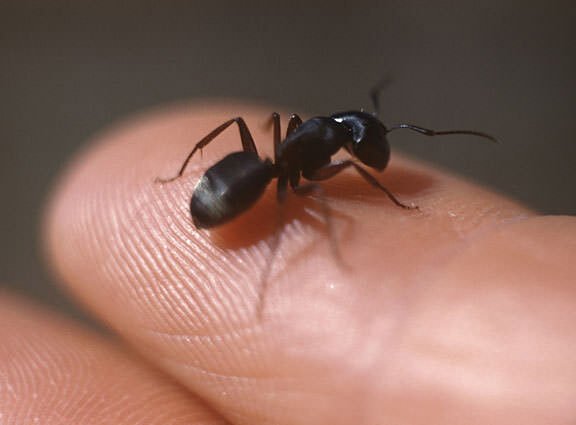Ants learn better after receiving caffeine feed , study shows.
Insects were able to follow the desired trajectory more efficiently after using the substance; The objective is to use the strategy on poison baits.
In the fascinating world of insects, ants are known for their impressive navigation and staging abilities.
Recently, a study revealed an even more intriguing picture of these creatures: they learn best after receiving a caffeine ration . This invention opens the door for new research into the effects of caffeine and other substances on the nervous systems of insects and, possibly, other animals.
The Study: Caffeine and Tiredness.
Researchers conducted an experiment to investigate the effects of caffeine on the ant stage . Caffeine is a stimulant known for its effects on humans, but little was known about its impact on insects. The team of scientists administered controlled doses of caffeine to groups of ants and monitored their stage capabilities in specific tasks.

Methodology
The study involved two main phases:
- Caffeine Government : Ants were divided into groups, with some receiving doses of caffeine and others receiving a placebo.
- Practice Test : The ants were subjected to a series of internship tests , such as finding food in complex mazes.
The researchers observed that insects that ingested caffeine were able to learn the route to other rewards faster than those that did not consume the substance. The study was carried out with 142 insects, each tested four times. A 28% improvement in travel efficiency was recorded with low doses of caffeine and 38% with intermediate doses.
Results Table
| Group | Performance in the Shooting Test |
|---|---|
| With Caffeine | 85% correct |
| No Caffeine | 60% correct |
Implications of the Study.
Understanding the Insect Nervous System
The results suggest that caffeine may have an exciting effect on the insects’ nervous system, similar to what occurs in humans. This can provide valuable insights into how chemicals influence insect behavior, helping scientists develop new strategies to control pests or improve the effectiveness of pesticides.
Applications in Other Areas
The findings could also have implications beyond the study of insects. The research could inspire new studies on the effects of caffeine and other substances on different species, including possible applications in neuroscience and psychopharmacology.
Uncontrolled Caffeine from Formigas Argentinas
The Argentine ant (Linepithema humile) is an invasive species that causes several problems by invading spaces and attacking sweet substances such as meat, bread and fruit. Furthermore , they harm ornamental and fruit-bearing vegetation . The researchers’ intention is to use caffeine to improve the efficiency of controlling these insects, making them faster at finding poisonous bait and spreading the poison throughout the colony.
Experimental procedure
In tests, ants walked across a Lego bridge to a platform where researchers placed a drop of sucrose solution mixed with caffeine. After ingestion, the sheet of paper containing the solution was removed so that the ants could not follow their own pheromone trail back to the reward location .

Caffeine Doses
Scientists used three different doses of caffeine:
- Low Ration : Similar to the amount found in natural vegetation .
- Intermediate Ration : Comparable to that present in some energy drinks.
- Rising Ration : Defined as the LD50 for bees, where half of the insects fed this amount die.
Results and Analysis
Ants that ingested low and intermediate doses of caffeine were more effective at finding their way to the next reward, suggesting an improvement in route staging ability. However, in high quantities, no significant differences in behavior were recorded.
Outcome
The study into the impact of caffeine on the ant stage is a fascinating example of why common substances can have unexpected effects on different species. Ants given caffeine showed a remarkable improvement in their staging capabilities , paving the way for new research and applications in various areas of science.

